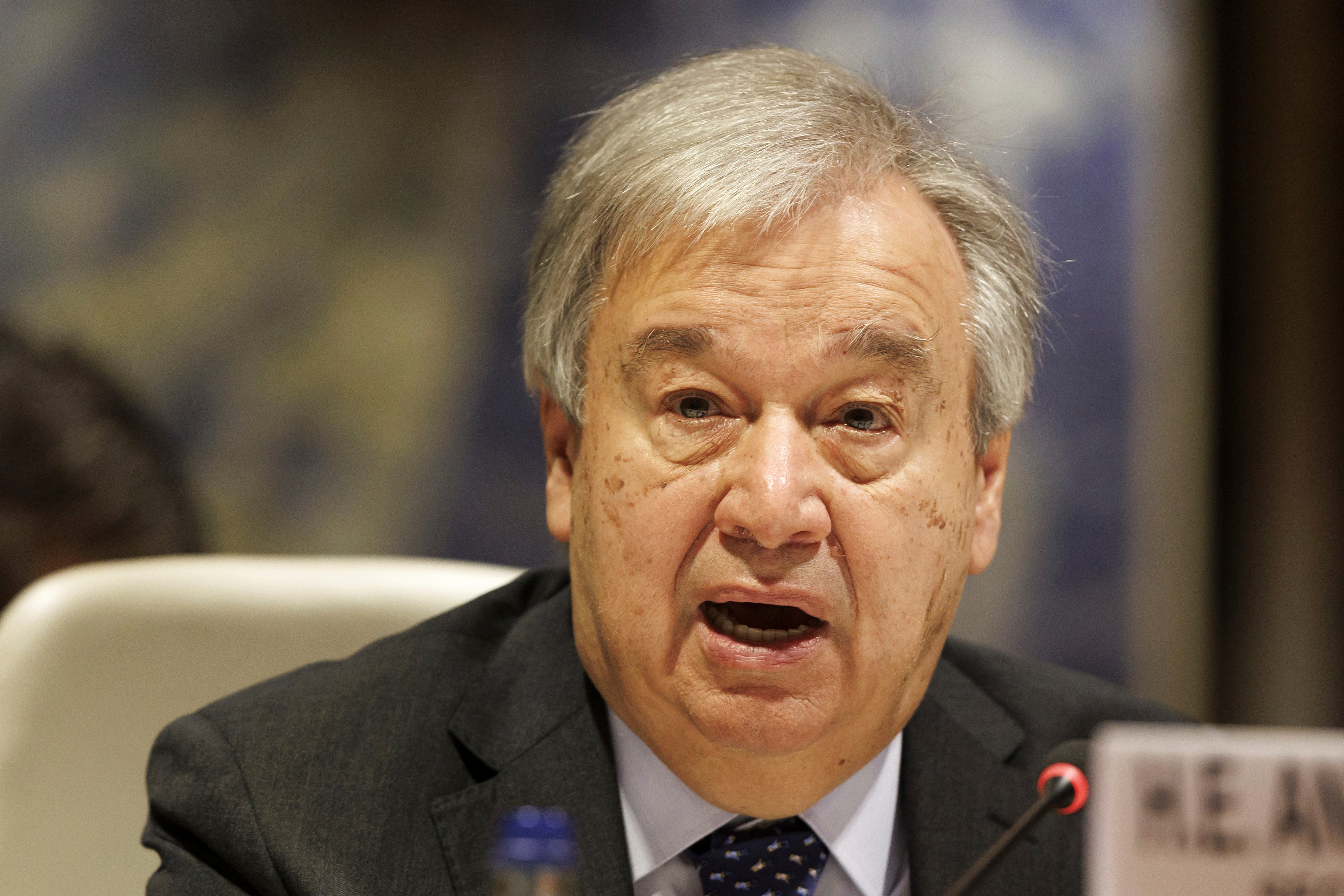Mea Culpa: sleepwalking into a well-worn cliche
Questions of style and usage in last week’s Independent, reviewed by John Rentoul


Antonio Guterres, secretary general of the United Nations, said the opposite of what we reported he said in a headline: “UN chief says world ‘sleepwalking into wider war’ in Ukraine.” The news article itself quoted his actual words: “I fear the world is not sleepwalking into a wider war. I fear it is doing so with its eyes wide open.”
It shows the power of cliche: that even when someone refers to a well-worn phrase in order to invert it, the hasty editor assumes that it is being used in its well-worn sense. Thanks to Teri Walsh for pointing it out. In our defence, Sky News did the same.
Go forth and use several instead: Is it too soon for another attack on “multiple”? Linda Beeley wrote to say that its use seems to be, er, multiplying everywhere, not just in The Independent. But she referred to two examples that were in our pages in the past few days. We said: “Multiple coroners investigating the deaths of nine patients since 2021 have repeatedly called on the NHS and ministers to improve services to prevent more.” And we referred to “a man being admitted to hospital multiple times while on a six-month waiting list for therapy”. The first we didn’t need, and the second could have been “several”.
The curse of the redundant “then”: We refer too often to “the then prime minister” or “the then major general”, when it is perfectly clear that we are not talking about someone currently in post. But the other day we had a striking variation in our reporting of the earthquakes, mentioning “the then-Turkish government’s botched response to a 1999 earthquake in the country’s northwest”. We didn’t need “then” at all, and definitely not the hyphen, which suggests that the government was Turkish but has since adopted a different nationality.
Tipping point: We wrote about institutional shareholders “pouring over their spreadsheets” a few days ago. That was changed to “poring”, a rare word that means “reading or studying attentively” and is only ever used with “over”. It is from Middle English pouren, of unknown origin, and nothing to do with tipping liquid out of a container.
By chance, the same article went on to say that burning fossil fuels “still pours carbon into our atmosphere”, prompting Roger Thetford to ask: can a gas pour? My ruling on that, based on dry ice, is: yes it can. Even upwards.
No question: In an article commenting on Tuesday’s ministerial reshuffle, we twice put a question mark at the end of sentences instead of a full stop. “The challenge remains as to whether the pain of this reorganisation can be translated into meaningful change?” And: “The only problem is that in a few weeks time it will return to being the jumbled mess it was before, leaving us to ask ourselves if it was really worth the bother?” Those are, as Paul Edwards pointed out, statements introduced by “whether” and “if”; they would have to be rephrased – “can it be translated?” and “is it really worth the bother?” – to need a question mark.
Sounds like: We reported the prime minister’s spokesperson’s answers to journalists’ questions about President Zelensky’s request for fighter planes: “Asked about the Kremlin’s warning that sending jets would illicit a military response, the No 10 official stressed that ‘it continues to be Russia that is escalating’.” That was changed to “elicit”, meaning draw out, which sounds the same as “illicit”, meaning forbidden.



Join our commenting forum
Join thought-provoking conversations, follow other Independent readers and see their replies
Comments